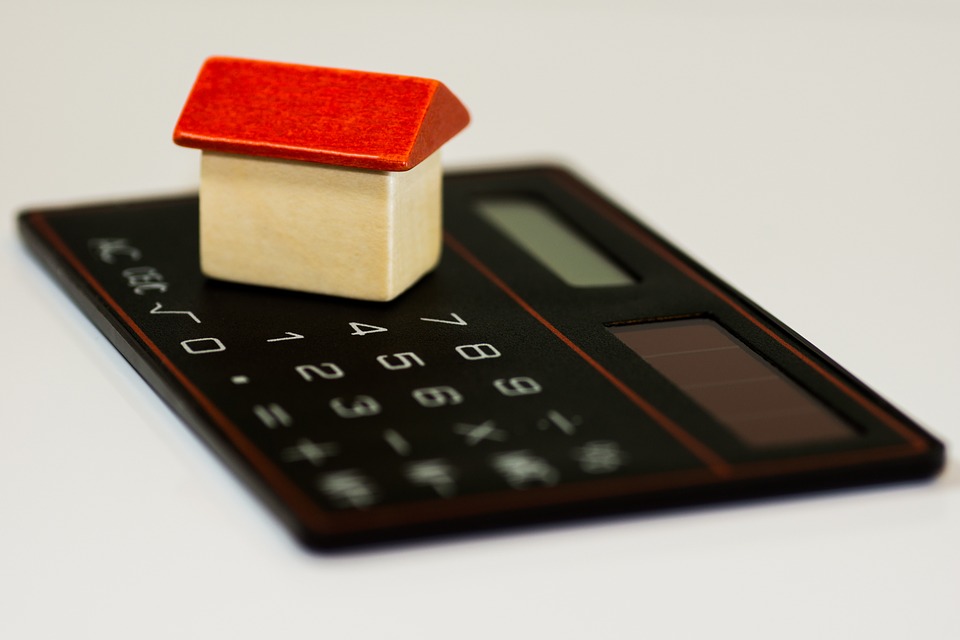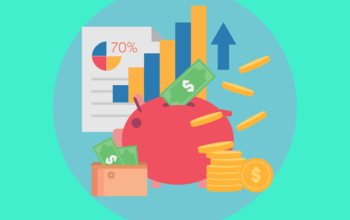Becoming a homeowner is a great feeling, but signing the 30-year mortgage might make you feel uneasy. For the next 30 years, you’ll slowly pay down the massive sum the bank has lent to you.
Unfortunately, the payoff will involve a huge amount of interest. Each year, the average American homeowner pays about $5,600 in interest on his or her home loan. If you took the entire 30 years to pay off your mortgage, you’d be out about $168,000 just in interest over the life of the loan.
Take a closer look at your amortization schedule to see the breakdown of payments toward mortgage and principal. Depending on the interest rate, you might be paying the same amount for interest each month as you pay toward the balance — or more!
Over time, the money you put into interest will decline, but not until you’ve built substantial equity into your home. If you’d prefer to reduce how much you pay in interest, then increase your loan payments.
Here are some strategies to accomplish that.
- Pay Extra Chunks Whenever You Can
“A few dollars each month will make a difference over many years, but you also need to put big chunks of money towards your mortgage if you want to get ahead,” says an article from the property management company Green Residential.
“The best way to do this is by putting all of your ‘found’ money towards repaying your home loan. Found money includes work bonuses, tax returns, inheritance money, or even the money you win from your office’s March Madness pool.”
“Found” money may not seem like much, but it can add up quickly over time, and empower you to remove a big chunk from your mortgage and the subsequent interest.
- Double Your Principal Mortgage Payment
You could simply double the amount you pay to your mortgage lender every month. Don’t forget, however, that some of that money goes toward homeowners insurance, taxes, interest, and private mortgage insurance (PMI).
Instead, double your principal payment. When you receive your mortgage, find how much you pay to principal every month, and pay twice that amount. This will significantly diminish how much you’ll pay in interest over time, since it cuts your loan term in half.
- Make Biweekly Payments
If you can’t afford to increase your monthly payments, then raise the frequency with which you make payments — for example, into biweekly installments. Since you’re charged interest every day, this will also reduce the amount of interest you’ll pay over the life of the loan.
“A biweekly mortgage is one in which the borrower makes a payment equal to half the fully amortizing monthly payment every two weeks,” explains Jack Guttenberg, aka: The Mortgage Professor.
“Because there are 26 biweekly periods in a year, the biweekly produces the equivalent of one extra monthly payment every year. This results in a significant shortening of the period to payoff. For example, a 4 percent 30-year loan converted to a biweekly pays off in 310 months — or 25 years, 10 months.”
- Refinance to a Shorter-Term Mortgage
You may not have been offered the option of a 15-year mortgage, but after you’ve made payments on time for several years, many lenders will allow you to refinance for a shorter term with a lower interest rate.
Not only will you pare the amount of interest you have to pay because your term is shorter, but it will also likely decrease your interest rate by anywhere from a quarter to three quarters of a percentage point, according to Dana Dratch of Bankrate.
“Let’s say you got a 30-year fixed-rate mortgage for $200,000 at 4.5 percent,” explains Dratch. “Five years later, you refinance into a 15-year loan at 4 percent. Doing so pays off the mortgage 10 years earlier and saves you more than $60,000 (if you exclude closing costs on the refi).”
- Cut Costs Around the House
At the moment, making extra payments on your mortgage might seem impossible because you don’t have disposable income. However, if you take a closer look at your monthly budget, you might discover key places where you may cut costs.
You might take a lunch to work, turn down your heat, eat out less often, cancel your unused gym membership, or reduce the total number of subscription streaming services you’ve been paying for but possibly not using that much.
“Toting a brown bag to work every day won’t win you any fashion contests. But trading lunch out for eating in can make you a lean-and-mean, mortgage-free machine three years ahead of schedule,” argues Chris Hogan, contributor for DaveRamsey.com.
“Applying your $100 a month in lunch money to your mortgage will also save you more than $28,000 in interest. Other small sacrifices can go a long way to help pay off your mortgage early [as well].”
Paying down your mortgage will definitely take time. It can be frustrating to make extra payments but see little difference for years.
But throughout the process, try to maintain a long-term perspective. Ten years from now, you’ll be grateful for the steps you took today.
Related Posts












